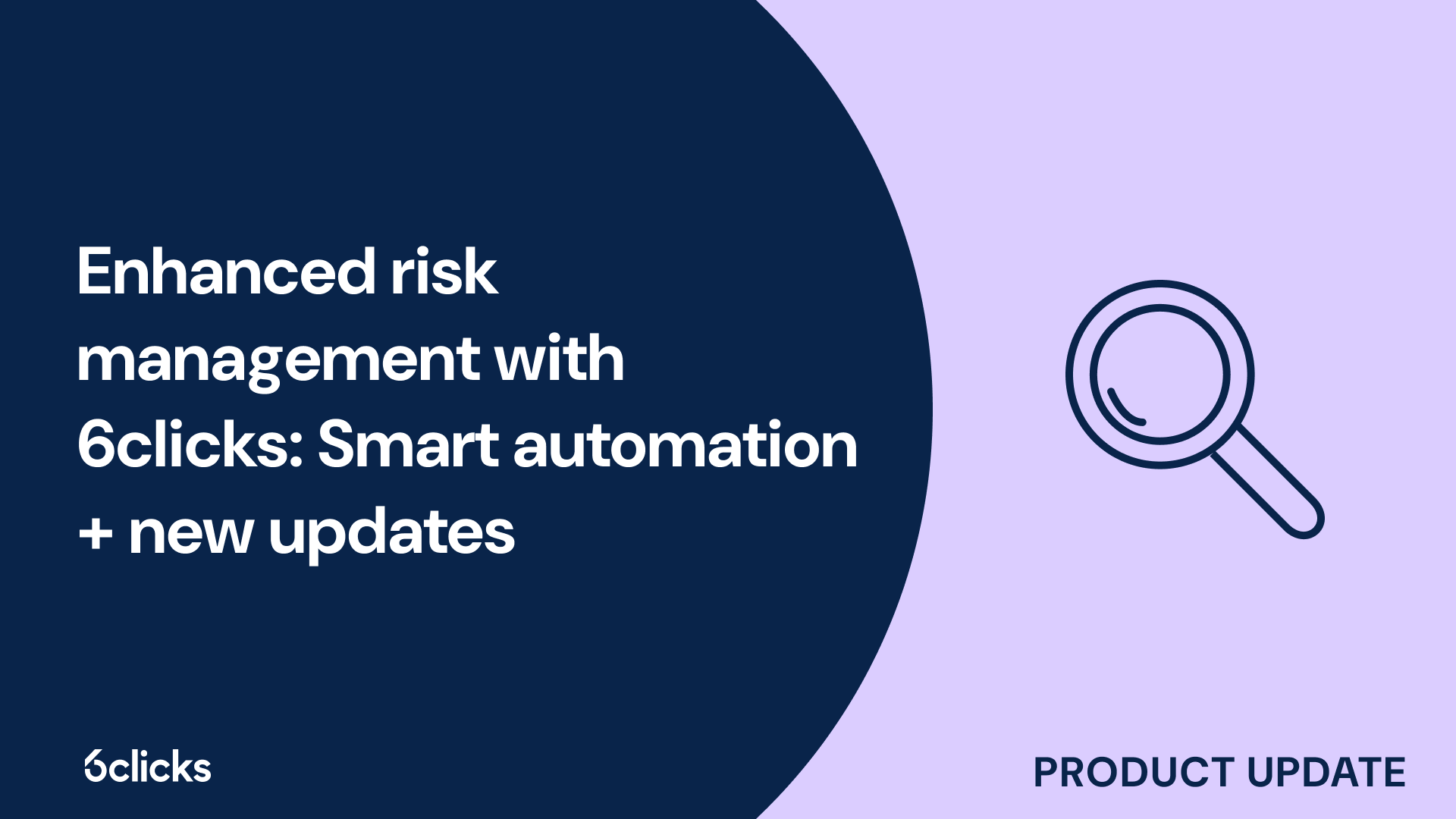Cyber Risk Management Expert Guide
Master cyber risk management with our expert guide! Learn how to identify, evaluate, and address cybersecurity threats using ISO 31000 principles. Access a turn-key cyber risk library and discover how to streamline risk assessments. Download now!
-1.png?width=200&height=249&name=Group%20193%20(1)-1.png)
Cyber Risk Management Expert Guide
Background of APRA 230
APRA 230, also known as Prudential Standard CPS 230 Operational Risk Management, is a standard introduced by the Australian Prudential Regulation Authority (APRA) to provide prudential requirements for operational risk management. It replaces the previous Prudential Standard APS 231 Outsourcing in relation to regulated entities. APRA 230 addresses the risks associated with critical operations, material service providers, and material operational incidents. It emphasizes the need for robust operational risk controls, business continuity planning, and management of third-party risks. The standard applies to all APRA-regulated entities, including banks, insurers, and superannuation funds. APRA 230 requires these entities to have a comprehensive risk management framework in place to assess, monitor, and manage their operational risks on an ongoing basis. It also establishes requirements for service provider arrangements, including due diligence, ongoing monitoring, and contingency plans. APRA 230 aims to enhance operational resilience, ensure compliance with prudential obligations, and minimize the financial and reputational impacts of operational disruptions.
Scope of Prudential Standard CPS 230 (APS 230)
The scope of Prudential Standard CPS 230 (APS 230) is extensive, as it applies to all APRA-regulated entities. This includes banks, insurers, and superannuation funds. APS 230 aims to replace five existing standards, namely CPS 231, CPS 232, SPS 231, SPS 232, and HPS 231. By consolidating these standards, APS 230 provides a comprehensive framework for operational risk management across the financial sector.
The replacement of the aforementioned standards with APS 230 signifies a more streamlined and efficient approach to managing operational risks. It ensures that all APRA-regulated entities adhere to consistent prudential standards when it comes to operational risk controls, business continuity planning, and service provider management policies. APS 230 requires entities to identify their critical operations and material service providers, assess their operational risk profile, and implement appropriate controls to manage and mitigate these risks.
Furthermore, APS 230 also includes provisions for operational resilience and compliance obligations, ensuring that entities have robust systems and processes in place to withstand disruptions and comply with regulatory requirements. It emphasizes the importance of thorough risk assessments, the establishment of clear risk appetite and tolerance levels, and the development of comprehensive business continuity plans.
With APS 230, APRA-regulated entities can expect a more holistic and effective approach to operational risk management, resulting in enhanced operational resilience and the ability to meet prudential obligations in an increasingly complex and interconnected financial landscape.
Impact of APS 230 on regulated entities
The implementation of APS 230 has a significant impact on regulated entities under APRA. This prudential standard aims to enhance operational risk management and strengthen the resilience of APRA-regulated entities against potential disruptions. APS 230 introduces more rigorous requirements and expectations for operational risk control, governance, and business continuity management.
One of the key impacts of APS 230 is the increased focus on Board governance, accountability, and oversight. Regulated entities are now required to have a clear and robust framework for overseeing operational risk management, with defined responsibilities and reporting lines.
APS 230 also addresses operational risk control failures and disruptions experienced by APRA-regulated entities, including material cyber breaches. It requires entities to identify their critical operations and assess the potential impact of disruptions, including cyber breaches. This emphasizes the importance of implementing appropriate controls to manage and mitigate operational risks, including comprehensive cybersecurity measures.
Key requirements outlined in APS 230 include assessing and controlling operational risks, improving business continuity management, and enhancing the entity's capability to manage and respond to operational disruptions. This includes conducting comprehensive risk assessments, developing and testing business continuity plans, and establishing clear risk appetite and tolerance levels.
Moreover, APS 230 introduces new obligations for regulated entities regarding service provider arrangements. Entities must now have comprehensive service provider management policies in place, including due diligence assessments and ongoing monitoring. This ensures that entities have an appropriate level of oversight and control over the activities carried out by their material service providers.
What does APS 230 replace?
APS 230 replaces five existing prudential standards, namely CPS 231 Outsourcing, CPS 232 Business Continuity Management, SPS 231 Outsourcing, SPS 232 Business Continuity Management, and HPS 231 Outsourcing. By consolidating these standards, APS 230 aims to streamline and enhance operational risk management, business continuity planning, and third-party risk management in APRA-regulated entities.
The main objective of APS 230 is to strengthen operational risk management by improving the governance, accountability, and oversight of operational risk controls within regulated entities. It requires entities to conduct comprehensive risk assessments, establish clear risk appetite and tolerance levels, and implement controls to effectively manage and mitigate operational risks.
APS 230 also emphasizes the importance of business continuity planning and management. Entities are required to develop and test robust business continuity plans to ensure continuity of critical operations in the event of disruptions, including cyber breaches. This enhances the entity's capability to manage and respond to operational disruptions and minimizes the adverse impact on customers, stakeholders, and the market.
Furthermore, APS 230 focuses on enhancing third-party risk management. Regulated entities must have comprehensive service provider management policies in place, including due diligence assessments and ongoing monitoring of material service providers. This ensures that entities maintain appropriate oversight and control over the activities carried out by their service providers.
Previous regulatory requirements
Before the introduction of APS 230, regulated entities were subject to various regulatory requirements concerning operational risk management. These requirements included ensuring the establishment and maintenance of effective internal controls, conducting comprehensive risk assessments on a regular basis, and adhering to prudential standards related to operational risk management. Additionally, entities were expected to develop business continuity plans and regularly review and test them to ensure preparedness for potential disruptions. Third-party risk management was also a crucial aspect, with entities required to enter into binding agreements and have adequate oversight of service providers. However, the introduction of APS 230 aims to enhance and consolidate these requirements to strengthen operational risk management and ensure the resilience of regulated entities in the face of operational challenges.
Basel II operational risk management framework
The Basel II operational risk management framework plays a significant role in the management of operational risks for APRA-regulated entities. It has also influenced the development of the new Prudential Standard CPS 230, which replaces the previous APRA operational risk management requirements.
The framework consists of several key components and requirements designed to enhance the operational resilience of financial institutions. These include comprehensive risk assessments, risk appetite determination, technology risk management, and business continuity planning. APRA-regulated entities are required to implement these components to effectively manage operational risks and ensure the continuity of critical operations.
The relevance of the Basel II operational risk management framework lies in its ability to identify potential risks to financial institutions and mitigate them through effective controls and oversight. It helps APRA-regulated entities to assess their operational risk profile, evaluate the material impact of potential disruptions, and establish appropriate tolerance levels for operational risks.
By incorporating the Basel II framework into the new CPS 230, APRA aims to strengthen operational risk management practices within the financial industry. The prudential standard places a greater emphasis on comprehensive risk assessments, robust internal controls, and proactive management of operational risk incidents. It also requires APRA-regulated entities to establish binding agreements with material service providers and maintain a register of these arrangements.
Overall, the Basel II operational risk management framework and the new CPS 230 are essential tools for APRA-regulated entities to effectively manage operational risks and ensure the continuity of critical operations. By adhering to these frameworks, financial institutions can enhance their operational resilience and comply with their prudential obligations.
Other regulatory requirements for operational risk management
In addition to the Basel II framework, the APRA 230 also sets out several other regulatory requirements for operational risk management. These expanded obligations aim to further enhance the operational resilience of APRA-regulated entities and ensure the continuity of critical operations.
Firstly, the prudential standard emphasizes the need for comprehensive risk assessments. It requires entities to regularly assess their operational risk profile, taking into account the impact of various potential disruptions. This enables entities to identify and prioritize areas of concern and allocate senior management and resources accordingly.
Secondly, the APRA 230 highlights the importance of designing and implementing robust operational risk controls. Entities are expected to develop and put in place effective controls that mitigate the likelihood and impact of operational incidents. This includes establishing clear procedures, developing contingency plans, and regularly testing the effectiveness of these controls.
Furthermore, the standard places increased emphasis on assessing the impact of business and strategic decisions on the entity's operational risk profile and resilience. This requires entities to consider the potential operational risks associated with new products, services, or expansion plans before they are implemented.
Additionally, APRA 230 necessitates the maintenance of comprehensive risk assessments for the provision of material services. Entities are required to conduct detailed risk assessments before entering into agreements or arrangements that involve material service providers. This helps entities to identify and address any potential operational risks associated with these arrangements.
Lastly, the prudential standard mandates the identification and timely addressing of operational risk incidents. Entities are expected to have robust incident management processes in place to detect, respond to, and rectify operational risk incidents quickly and effectively.
Overall, these additional regulatory requirements outlined in the APRA 230 provide a comprehensive framework for institutions to manage operational risks and ensure the resilience of their operations.
Overview of the changes introduced by APS 230
The introduction of APS 230 has brought about significant changes in the way apra-regulated entities manage and mitigate operational risks. The prudential standard emphasizes the need for comprehensive risk assessments, robust operational risk controls, and the consideration of potential risks associated with business decisions. It also requires entities to conduct detailed risk assessments for material service providers and have effective incident management processes in place. These changes aim to strengthen the operational resilience of entities and ensure they are able to effectively respond to and mitigate operational risks. Overall, APS 230 provides a more comprehensive and proactive approach to operational risk management in the apra-regulated industry.
New requirements for operational risk profile assessments
APRA 230 replaces the previous prudential standard CPS 220 and introduces new requirements for operational risk profile assessments for APRA-regulated entities. Under the new standard, entities are now obligated to maintain a comprehensive assessment of their operational risk profile.
This comprehensive assessment entails conducting scenario analyses to test the entity's operational resilience. The aim is to identify and evaluate potential risks and vulnerabilities, ensuring proactive measures are in place to manage and mitigate them effectively.
Entities must assess specific risks such as legal risk, regulatory risk, compliance risk, conduct risk, technology risk, data risk, reputational risk, and change management risk. By identifying and quantifying these risks, entities can develop more targeted risk management strategies and allocate appropriate resources to address key areas of concern.
Furthermore, entities are now required to notify APRA of any operational risk incidents that have a material financial impact or impact on critical operations. This obligation ensures timely reporting and allows for appropriate oversight and intervention by APRA when necessary.
The new requirements for operational risk profile assessments aim to enhance the operational resilience of APRA-regulated entities and strengthen their ability to effectively manage and mitigate operational risks. By conducting comprehensive assessments and scenario analyses, entities can better safeguard their operations within tolerance levels and fulfill their prudential obligations.
New requirements for service provider arrangements management policies
The new requirements for service provider arrangements management policies aim to enhance operational risk management and ensure the resilience of entities regulated by APRA. These requirements differ from previous regulatory standards in several ways.
Firstly, entities must now develop and maintain comprehensive service provider management policies that outline the processes and controls in place to manage operational risks associated with service provider arrangements. These policies need to be reviewed and updated on an ongoing basis to reflect changes in the entity's operational risk profile and the evolving regulatory landscape.
Secondly, the new requirements place a greater emphasis on identifying and assessing the potential risks and vulnerabilities associated with service provider arrangements. Entities must conduct a comprehensive risk assessment to identify the material business activities and critical operations reliant on service providers. This assessment should consider risks such as legal, regulatory, compliance, technology, reputational, and change management risks.
Key components that should be included in the management policies include clear governance arrangements, comprehensive due diligence processes for selecting service providers, ongoing monitoring and review processes, and business continuity planning. These policies should also outline the entity's approach to risk appetite, risk tolerance levels, and reporting obligations.
Overall, the new requirements for service provider arrangements management policies provide a more robust framework for managing operational risks and ensuring the resilience of entities in the face of potential disruptions caused by service provider arrangements.
Updated compliance obligations regarding business continuity planning and operational resilience
APRA-regulated entities are now subject to updated compliance obligations regarding business continuity planning and operational resilience, in accordance with the changes introduced by APS 230.
These obligations require entities to have a comprehensive understanding of their critical operations, which are the key activities necessary for the entity's ongoing viability. This includes identifying the material business activities and processes that are reliant on service providers.
Entities are also required to develop tolerance levels for disruptions, which determine the extent to which critical operations can be impacted before a significant adverse impact occurs. This helps entities assess and manage the risks associated with disruptions to their operations.
To meet these obligations, entities must maintain a credible Business Continuity Plan (BCP) that outlines how critical operations will be maintained within the established tolerance levels. The BCP should include strategies for managing disruptions, contingency plans, and recovery procedures. It should be regularly reviewed and tested to ensure its effectiveness in maintaining operational resilience.
Overall, the updated compliance obligations emphasize the importance of business continuity planning and operational resilience for APRA-regulated entities, ensuring they are adequately prepared to manage disruptions and maintain the continuity of critical operations.
Updated requirements for internal controls and core technology services
APRA's Prudential Standard APS 230 Operational Risk Management sets out updated requirements for internal controls and core technology services for APRA-regulated entities. These requirements are aimed at managing operational risks and ensuring ongoing compliance.
Under APS 230, APRA-regulated entities are required to maintain effective internal controls to identify, assess and manage operational risks. This includes establishing a comprehensive risk management framework that outlines the entity's risk appetite, tolerance levels, and the processes for monitoring and reporting on operational risks.
Specific requirements outlined in APS 230 include the need for entities to maintain information technology capabilities that support critical operations. This includes having robust controls in place to protect the confidentiality, integrity, and availability of information. Entities are also required to conduct comprehensive risk assessments of their core technology services, ensuring that any material risks are identified and managed effectively.
Core technology services play a crucial role in an entity's operational resilience and the management of operational risk incidents. These services support the entity's critical operations, and any disruptions can have a significant impact. Therefore, entities must have appropriate controls and recovery procedures in place to ensure the continuity and resilience of their core technology services.
In summary, APS 230 lays out updated requirements for internal controls and core technology services to enable APRA-regulated entities to effectively manage operational risks and ensure operational resilience. By adhering to these requirements, entities can enhance their risk management frameworks and protect their ongoing viability.
Benefits of implementing the new standards in CPS 230 (APS 230)
The implementation of the new standards in CPS 230 (APS 230) brings forth several benefits for APRA-regulated entities. Firstly, it ensures the maintenance of effective internal controls to identify, assess, and manage operational risks. This comprehensive risk management framework enables entities to establish their risk appetite and tolerance levels while providing clear processes for monitoring and reporting operational risks. Secondly, the new standards emphasize the importance of robust controls and risk assessments of core technology services, ensuring that any material risks are identified and managed effectively. By doing so, entities can enhance their operational resilience and effectively manage operational risk incidents. Lastly, the implementation of APS 230 requires entities to have appropriate controls and recovery procedures in place, ensuring the continuity and resilience of their core technology services. Overall, the new standards provide a comprehensive framework for managing operational risks and promoting operational resilience within APRA-regulated entities.
Improved risk management practices & enhanced governance Structure
APRA 230, also known as the Prudential Standard CPS 230 Operational Risk Management, replaces the outdated and less comprehensive prudential standard CPS 220 Risk Management for all APRA-regulated entities. With the introduction of APS 230, there is an emphasis on improved risk management practices and an enhanced governance structure.
The new standards outlined in CPS 230 aim to enhance risk management practices and governance by requiring entities to develop a risk management framework and comprehensive risk assessment. This framework includes the establishment of risk appetite and tolerance levels, which enables entities to manage and monitor their operations within acceptable risk levels.
Moreover, CPS 230 also emphasizes the importance of business continuity planning and managing third-party risks. APRA-regulated entities are now required to assess and mitigate the potential impact of disruptions to their critical operations and material service providers, ultimately enhancing the overall operational resilience.
By implementing APS 230, APRA-regulated entities are better equipped to identify and manage operational risks that may have a material impact on their financial status and prudential obligations. These improved risk management practices and enhanced governance structure contribute to the overall operational resilience of entities, ensuring both the stability of the financial system and the protection of customer interests.
Increased awareness & monitoring of critical operations & material service providers
With the implementation of APS 230, there has been an increased awareness and monitoring of critical operations and material service providers among APRA-regulated entities. These entities are now required to maintain comprehensive assessments of their operational risk profiles, ensuring a thorough understanding of potential vulnerabilities and risks associated with their operations.
APRA-regulated entities must regularly monitor the effectiveness of their operational risk controls to ensure that they are adequately mitigating risks and maintaining operational resilience. By continuously assessing and reviewing their risk management practices, entities can identify and address any weaknesses or areas for improvement.
Furthermore, APS 230 places an obligation on APRA-regulated entities to notify APRA of any operational risk incidents that may have a material financial impact or impact critical operations. This ensures that APRA is aware of any significant incidents that could potentially jeopardize the stability and continuity of an entity's operations. By promptly communicating such incidents to APRA, entities can work collaboratively with the regulatory body to manage and mitigate the impact.
Overall, APS 230 has led to an increased focus on the awareness and monitoring of critical operations and material service providers. APRA-regulated entities are now more vigilant in assessing their operational risk profiles, regularly monitoring the effectiveness of their risk controls, and promptly notifying APRA of any significant operational risk incidents. This heightened attention to operational risk management ultimately enhances the overall resilience and stability of APRA-regulated entities.
Check out our related blog: Understanding and implementing APRA CPS 230








